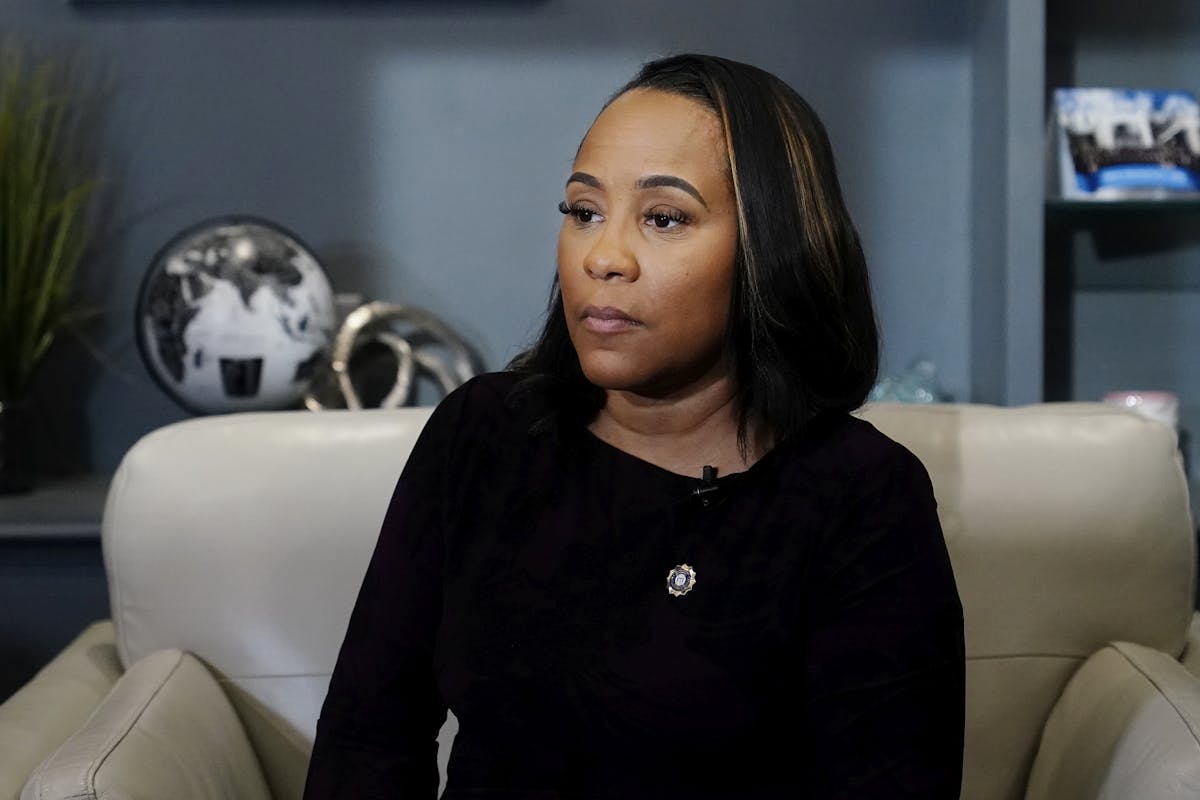Trump Cites Fani Willis’s ‘Communications With God’ in Request To Make Oral Arguments for Her Disqualification
The 45th president wants his day in court to argue that the district attorney’s relationship with her former boyfriend tainted the case.

President Trump’s request that the Georgia Court of Appeals hear oral arguments for why District Attorney Fani Willis should be disqualified underscores the possibility that she could be barred from prosecuting the case she herself brought last summer.
Appellate oral arguments are discretionary in Georgia. The disqualification issue comes to the court of appeals after Judge Scott McAfee ruled that Ms. Willis could stay on the case after her former boyfriend, Nathan Wade, resigned. Judge McAfee found that the lovers’ behavior was defined by an “odor of mendacity” and generated a “significant appearance of impropriety.”
Trump requested review from the Georgia court of appeals, which granted his petition and ordered the case frozen during the pendency of its deliberation on Ms. Willis’s fate. It tentatively set oral arguments for October 4, but has yet to issue a final decision on whether they will be held. The appellate tribunal could also decide the issue solely on the basis of written responses.
Trump argues that oral arguments are in order because the case presents a “novel issue of first impression concerning the legal standard … to disqualify an elected District Attorney and her office.” The 45th president argues that Ms. Willis’s relationship with Mr. Wade, whom her office paid more than $650,000, harmed Trump’s due process rights. He also points to comments she made accusing the defendants of “playing the race card.” He contends that amounts to tainting the jury.
Trump now writes that comments like that one “injected race and her communications with God into the case” as well as “the prospective jury pool,” and “stoked racial animus against the defendants and their counsel.” Ms. Willis delivered those remarks at Big Bethel African Methodist Episcopal Church, on Martin Luther King Jr. Day. Trump argues that the homily violated Georgia’s Rules of Professional Conduct for lawyers.
Trump’s lead attorney, Steven Sadow, tells the court of appeals that Judge McAfee’s remedy was insufficient to cure what the defense lawyer asserts is an actual conflict of interest. He writes that the “withdrawal of Special Assistant DA Wade did nothing to cure nor mitigate the harm to the defendants from DA Willis’ extrajudicial speech.” The Sixth Amendment promises the “accused” an impartial jury.
The court of appeals could find that Ms. Willis was not truthful with Judge McAfee. She denies that her romance with Mr. Wade began before he was hired, though cellular phone data discloses a high volume of texts and phone calls between the two before his appointment. She also claims that she paid him back — in cash — for trips they took to Napa Valley, Belize, and Aruba. Judge McAfee found that explanation plausible. The higher court could disagree.
“Focused time to get it right,” Trump argues, “is important — failure to disqualify a prosecutor who should be disqualified is a structural error that can necessitate retrial without a showing of prejudice.” He writes of the need to “simplify an unusually complex case at this interlocutory stage,” meaning while the appeal is being heard. He warns of an “upheaval of not one, but multiple, costly jury trials” if Ms. Willis is kept on unlawfully.
Ms. Willis has not yet weighed in. Trump’s brief explains that the “State’s position is unknown for it has chosen not to respond.” The district attorney urged the court of appeals not to take the case at all, a request that was denied. She suffered a second blow with the order to stay the proceedings pending appeal, meaning that Judge McAfee’s courtroom will be closed for business for the duration of the appeal. A decision could come as late as March.

